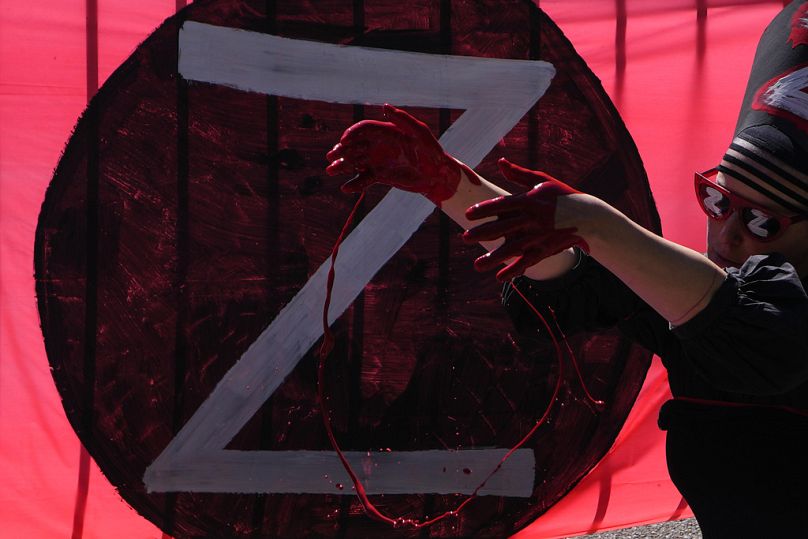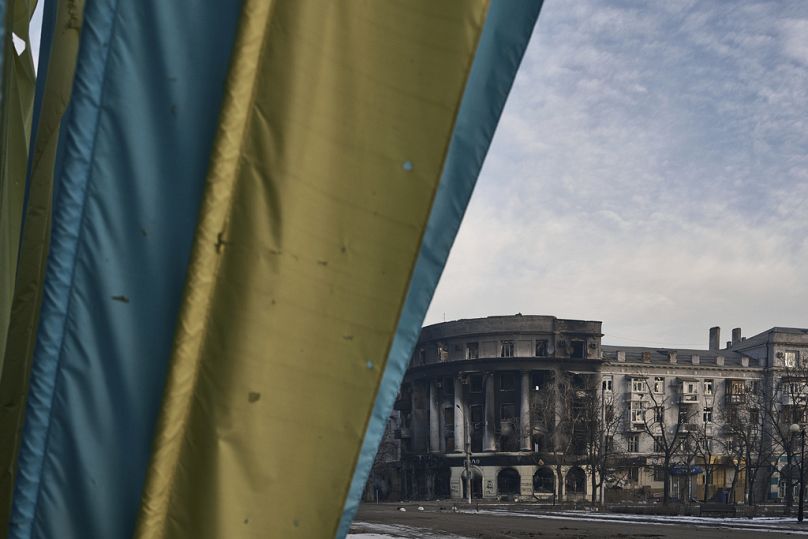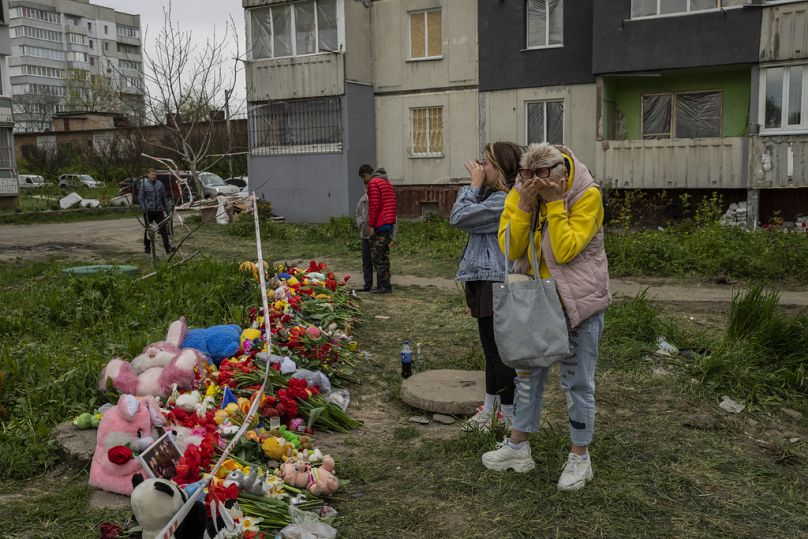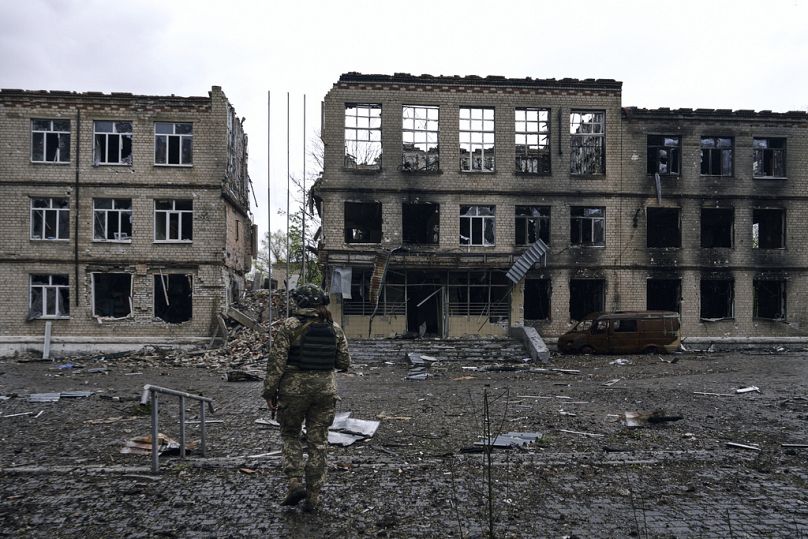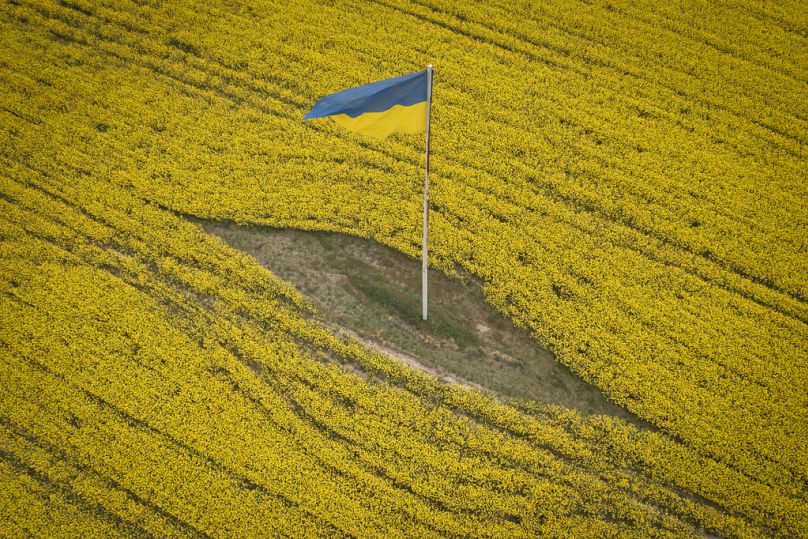Some newsrooms may prefer the term “war in Ukraine” as it may come across as less biased than “invasion”. However, using the right term would be a more accurate description of what is currently happening in Ukraine, Ane Mestvedthagen writes.
“Ukraine war” and “war in Ukraine” are terms frequently used by media outlets to refer to the war illegally started by Russia on 24 February 2022.
 ADVERTISEMENT
ADVERTISEMENT
 ADVERTISEMENT
ADVERTISEMENT
But if Russia started the war by invading its peaceful neighbour, why do media outlets not use terms like “Russia’s invasion of Ukraine” instead? And why does it matter how media outlets refer to it?
It might seem like a minor detail. But the way we address the war becomes crucial for our understanding of what is going on and for public opinion.
Empathy takes a hit
While “Ukraine war” might seem more punchy than “Russia’s invasion of Ukraine” or “Russia’s war”, it can create the perception that Ukraine shares at least part of the blame for Russia’s war of aggression.
This was seen in a news article published by the BBC earlier this year.
The article began by stating that “War in Ukraine will push up energy prices and see UK families squeezed even further”. In fact, the article does not once mention Russia.
It also featured a link to another article with the title “Five ways the Ukraine war could push up prices”.
In articles that discuss spill-over effects on other countries, it is especially important to use accurate terminology.
Russia’s invasion of Ukraine has caused economic hardship and higher prices on essential goods such as electricity, gasoline, and food.
For struggling families in Europe and around the globe, it might be difficult to feel sympathy for Ukraine if the perception is given that the country invaded and not the one invading is the reason behind these economic hardships.
Calling it 'Ukraine crisis' is worse for the readers
The BBC article is one example, but far from the only one. News outlets often blame inflation on the “Ukrainian war” rather than the “Russian invasion”.
While the problem was more prominent during last year’s large-scale news coverage of inflation and increased prices, it remains a commonly used term in discussions on prices, seen both among Reuters and Washington Post.
In articles that discuss the invasion itself, several news sites use “Ukraine war” in their tags and titles, supplemented with “Russia’s invasion” and “act of aggression” in the actual article. It is a start.
More contentious is the term “Ukraine crisis”, which downplays the act of aggression committed against Ukraine.
On a similar note, the “Russian-Ukraine war” alludes to a mutual fight between two countries rather than an invasion.
Ukraine is defending its right to exist
The United Nations Secretary-General António Guterres refers to it as “Russia’s invasion of Ukraine”; the attack is considered a violation of Ukraine’s territorial integrity and sovereignty, contrary to the principles of the UN Charter.
The EU describes Russia’s war on Ukraine as an “unprovoked and unjustified military aggression”, and the Council of Europe refers to “the aggression of the Russian Federation against Ukraine”.
The International Association for Democracy (IAD) agrees with the EU, the UN, and the Council of Europe and recommends using the term “Russia’s illegal invasion of Ukraine”.
News media organisations should refrain from using words that could lead their audience to believe that Ukraine is the reason behind this rise in living expenses.
After all, Ukraine is defending its right to exist against an unprovoked, illegal invasion.
It would be, therefore, prudent to encourage companies and news media to evaluate the ways they talk and write about Russia’s invasion of Ukraine.
We should talk about how Russia’s illegal invasion of Ukraine will push up energy prices and how Russia’s act of aggression could push up prices elsewhere in Europe. Not the other way around.
Using the right term does not make the coverage less objective
Some newsrooms may prefer the term “war in Ukraine” as it may come across as less biased than “invasion”. The media should indeed strive for objective reporting.
However, using the right term would not create less objective news coverage. Rather, it would be a more accurate description of what is currently happening in Ukraine.
The world witnessed with horror when the Russian military illegally invaded Ukraine a little over one year ago. Russian leader Vladimir Putin claimed Russia performed a “special military operation” to “demilitarise and de-Nazify Ukraine”.
However, few, if any, Western countries have believed this claim. Since the beginning of the invasion, multiple atrocities have been disclosed.
There has been a wide range of violations of international human rights law and international humanitarian law. Several war crimes have been committed against civilians and infrastructure.
Let's call it what it is
Ukrainians have shown immense resilience against Russian troops in the fight to protect Ukraine’s sovereignty.
The rest of Europe has provided Ukraine with economic, military, and diplomatic support.
The EU will continue to defend Ukraine’s democratic freedom however long it takes, as EU’s chief diplomat Josep Borrell emphasised earlier this year. Unity with Ukraine remains strong, rightfully so.
However, to ensure that the unity for Ukrainian sovereignty remains constant, we should remember to support Ukraine even through the way we speak, and we must avoid giving a false impression about who is responsible for the hardship.
Let us call it what it is. An illegal invasion. An act of aggression. Carried out by Russia.
_Ane Mestvedthagen is a Public Affairs Officer at the International Association for Democracy (IAD), where she works to raise awareness about issues relating to democracy around the globe.
_
_At Euronews, we believe all views matter. Contact us at view@euronews.com to send pitches or submissions and be part of the conversation.
_











